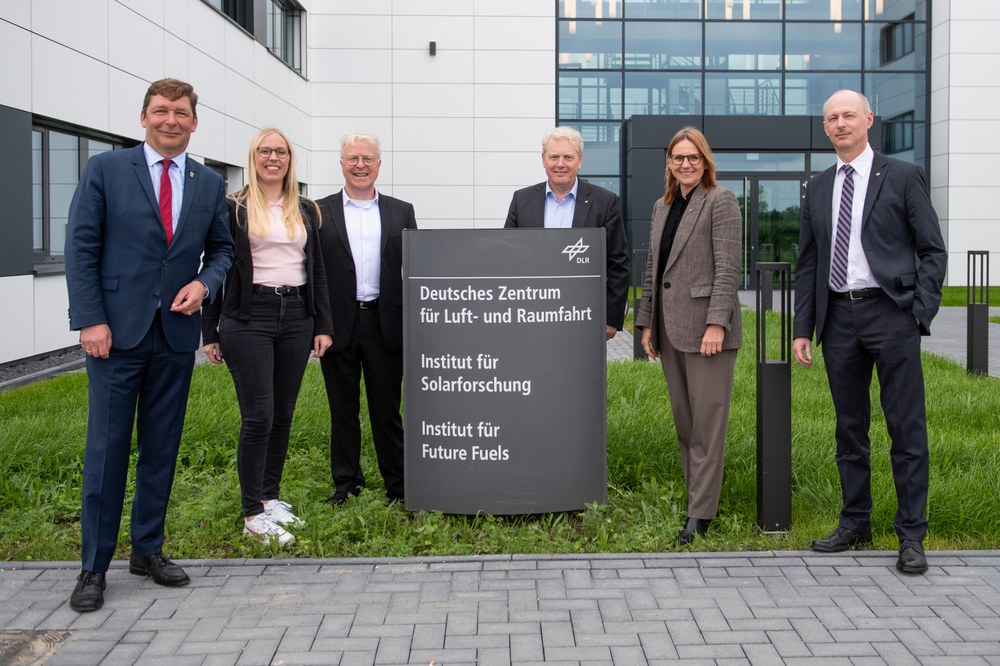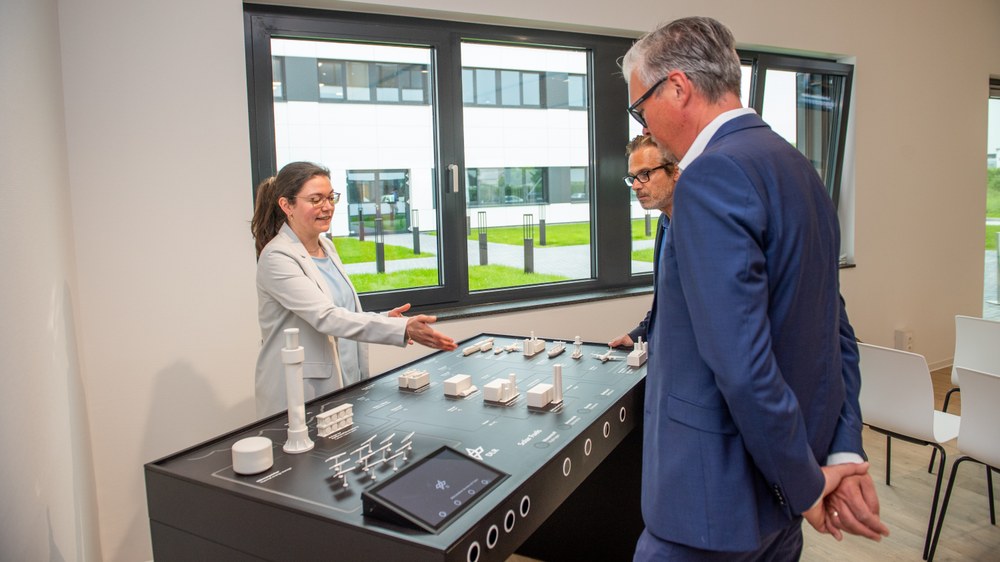All under one roof: new premises of the Institute in Jülich officially inaugurated
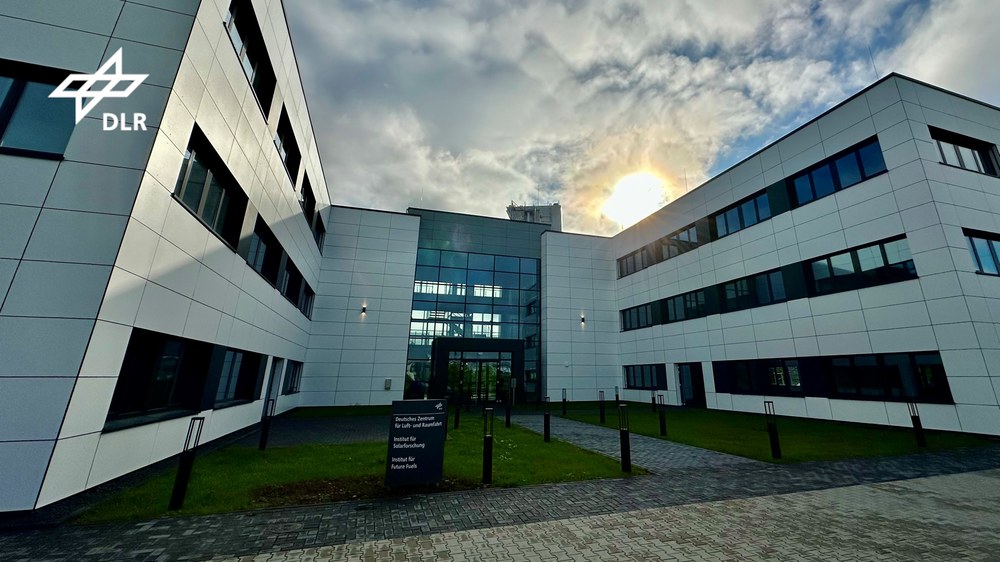
- The new premises of the Institutes of Future Fuels and Solar Research in Jülich were officially inaugurated at a ceremony attended by numerous guests from politics, local companies and DLR.
- 13 months of construction work have now come to an end and the relocation of the two institutes to the modern office building is now in its final phase.
- A glance out of the window tells that this is the right place, in the immediate neighbourhood of the Jülich solar towers.
Prof Bernhard Hoffschmidt, Director of the Institute of Solar Research, addressed the guests with opening words of welcome. He expressed his gratitude to the building authority of the city of Jülich, the VALERES Industriebau GmbH as well as the Jülich urban development company (SEG) and the Jüllich real estate company (JIG), which had worked together with DLR to develop pragmatic solutions with regard to the financing and practical realisation of the construction project. In this context, Bernhardt Hoffschmidt presented a bouquet of flowers to Hanna Jeworowski (SEG) with special thanks for her outstanding commitment as project coordinator.
In his welcoming address, Jülich's mayor Axel Fuchs emphasised the city's commitment to the research location and the importance of the DLR large-scale research facilities Solar Towers Jülich and Synlight, without which there would be no Brainergy Park Jülich. With over 4,000 to 5,000 jobs, this represents an important economic factor in the region.
In her speech, Dr Melanie von der Wiesche, Lead Site Management West at DLR, praised the pilot character of the new building and the creative implementation, which Prof Hoffschmidt had driven forward with a great deal of enthusiasm and creative solutions. Jürgen Hein, Head of Human Resources and Legal Affairs at DLR, also emphasised the constructive and performance-oriented atmosphere during his visits to Jülich.
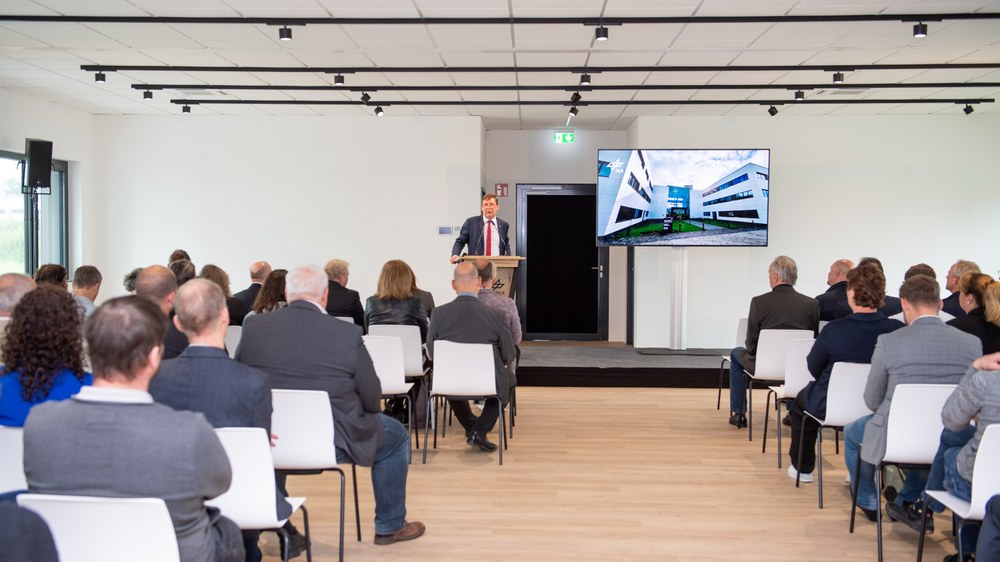
Michael Schmitz, CEO of PRG Projekt Rheinland AG, which had innovatively designed and realised the interior of the new offices, gave a concluding presentation on the new spatial concept. Christian Sattler, Director of the Institute of Future Fuels, also emphasised the importance of Jülich as a location for innovation: "We want our good ideas to stay here and Jülich is the place for them. We take this out into the world, but we also bring the world to Jülich - this is particularly important to us."
New concepts for new requirements in the world of work
After the official welcome, the guests took the opportunity to have a drink and gain their own impression of the building's innovative spatial concept. Starting in the break area on the ground floor, where employees can find a wide variety of seating and separate areas in addition to a modern kitchenette, a tour of the three floors of the building began.
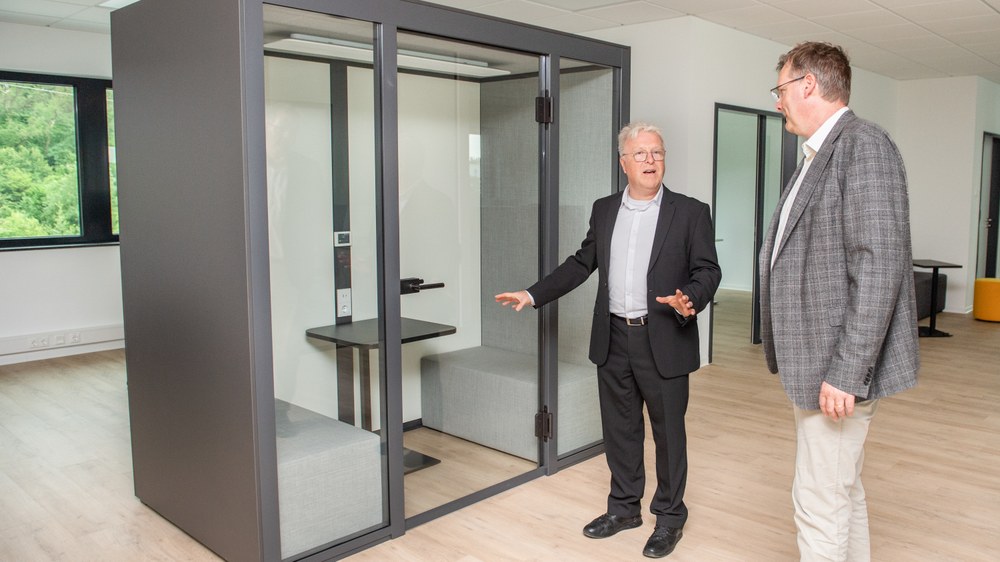
Due to the increasing number of employees working from home and the requirements for mobile and agile working, both institutes will be using open-space offices in the building in future, combined with project areas, focus workstations, meeting rooms, break-out zones and social areas, spread over more than 3,000 square metres. "Good collaboration only works if you run into each other," says Bernhard Hoffschmidt. "It's an experiment that we are convinced of. We have to take the time to try it out." In this way, 200 jobs are created.
Shared synergies on three floors
The inauguration ceremony was the official starting point for a joint, interdisciplinary and creative collaboration between the two institutes under one roof. Employees and planners got talking about the new working environment. A development that is only the beginning thanks to the open concept of the new building. The next prerequisite to develop green fuels is already being planned:
The construction of a new chemistry laboratory in Jülich.
